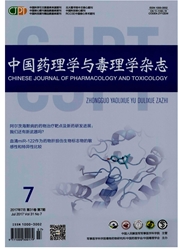

 中文摘要:
中文摘要:
流行病学调查提示,孕期不良环境可引起子代低出生体重及其成年后多种慢性疾病的易感性增加,如代谢性疾病和神经精神性疾病等。然而,其发生机制尚未见系统的阐明。下丘脑-垂体-肾上腺(HPA)轴是机体应激相关的重要神经内分泌轴,在出生前、后的应激防御应答中发挥着重要的作用,也是宫内时期胎儿易受损伤的重要靶位。研究发现,孕期多种不良环境因素(包括外源环境和母体健康因素)可通过母体-胎盘-胎儿生物学单位,多途径地影响宫内胎儿发育,造成其出生后HPA轴发育编程改变及成年后多种慢性疾病易感。本综述结合本实验室的最新研究结果,综述了国际上有关孕期不良环境所致子代成年疾病易感的病因学和宫内编程机制的最新进展,提出宫内母源性糖皮质激素过暴露可引起子代宫内神经内分泌代谢编程改变,其核心是多器官糖皮质激素-胰岛素样生长因子1轴编程,表观遗传修饰异常参与其编程过程。
 英文摘要:
英文摘要:
Epidemiological studies reveal that prenatal adverse environment could cause lower birthweight in offspring and increase the susceptibility to multiple chronic diseases(e.g. metabolic and neuropsychiatric diseases etc.) after maturity. However, the underlying mechanism remains unclarified. The hypothalamic-pituitary-adrenal(HPA) axis is a key neuroendocrine axis playing pivotal roles in systemic stress responses before and after birth. It is also an important but vulnerable fetal targeting organ. Previous studies showed that many environmental insults during pregnancy, including external environment and maternal health condition, could affect fetal development in multi-ways via maternalplacental-fetal unit, which leads to the intrauterine programming alteration of HPA axis and the increased susceptibility to chronic diseases in adulthood. This article reviews the latest global advances in the etiology of increased susceptibility to adult diseases induced by compromised prenatal environment and the associated intrauterine programming mechanisms by incorporating our recent research findings, and proposes that the fetal over-exposure to maternal glucocorticoids(GC) could bring about the intrauterine neuroendocrine metabolic programming alteration in offspring: the core is the programming of GC-insulin-like growth factor 1 axis in multiple organs, and the abnormal epigenetic modification is involved in this programming.
 同期刊论文项目
同期刊论文项目
 同项目期刊论文
同项目期刊论文
 Testosterone-Metabolizing Capacity and Characteristics of Adrenal Microsomes in Human Fetus In Vitro
Testosterone-Metabolizing Capacity and Characteristics of Adrenal Microsomes in Human Fetus In Vitro 期刊信息
期刊信息
